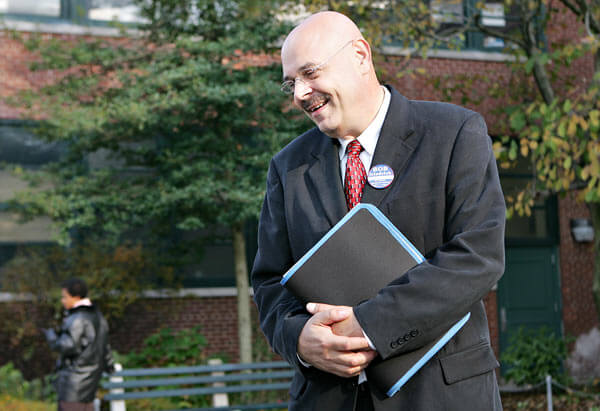By Phil Corso
Despite a recent uproar over the validity of civic-minded groups such as co-op and condominium organizations being allowed to meet in public schools, the city Department of Education assured them that the doors would remain open.
In a letter addressed to City Councilman Mark Weprin (D-Oakland Gardens), DOE Public Affairs Director James Dandeneau cleared the air after some groups said they were told to stay out of local schools for meetings.
Bob Friedrich, the Presidents Co-op and Condo Council co-president and Glen Oaks Village president, said in November that his co-op group could no longer meet at a local school unless it reclassified itself as nonprofit or conferred with the DOE as to why it was meeting and whether or not it served a public purpose.
It was the first time he had ever received such a notice, Friedrich said, after several occasions when he hosted community meetings in area public schools.
“The fact that the DOE has not defined what is or isn’t a public purpose and will leave that decision to a cabal of DOE lawyer-crats out of the public eye is troubling,” Friedrich said late last year. “The school chancellor and Bloomberg administration have heretofore successfully kept this ruling under the radar, which says a lot about the lack of transparency in the rule-making process.”
In response, he joined with Weprin to open up a dialogue with the city to figure out what had spurred the sudden shift in policy. Both groups sent letters to the DOE demanding an explanation.
The city rebutted, adding that permits for public meetings were evaluated on a case-by-case basis in accordance with DOE regulations.
But now, the DOE has backtracked on the issue and reassured community groups that their access to public schools for meetings would not be in jeopardy.
Dandeneau said in his letter that the DOE issues Chancellor’s Regulation D-180 permits to groups holding social, civic or recreational meetings related to the “welfare of the community,” which includes co-ops, condos and tenant organizations.
“Therefore, homeowners’ cooperatives, such as the one referenced in your letter, will be allowed to seek permits to use school space for meetings,” Dandeneau said.
Weprin said the confusion stemmed from the city’s attempt to classify groups such as co-op groups. In a statement, the councilman said the city Division of School Support and Instruction ruled that for-profit companies would be barred from using public schools unless they become nonprofits.
“There are many community groups that do not fit the for-profit profile but are not registered as nonprofits either,” Weprin said in a statement.
Since some community groups such as co-ops fell into a gray area with the city, Weprin said regulations needed to be revised with more specific language.
“There would be no reason for the DOE to exclude co-ops or condos from meeting public schools after hours, as they have done for many years,” Weprin said. “I thank the agency for its rational response.”
Reach reporter Phil Corso by e-mail at pcorso@cnglocal.com or by phone at 718-260-4573.



































